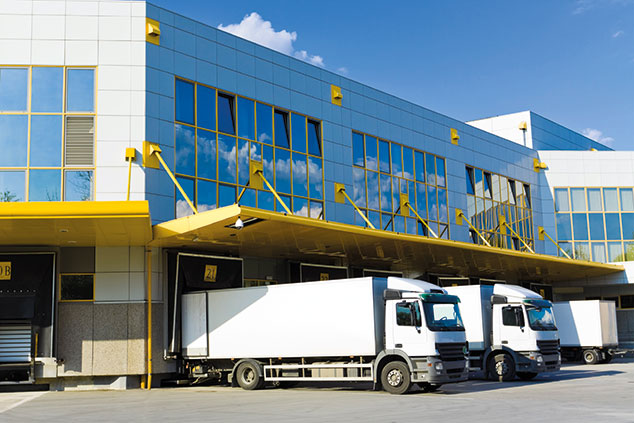
Buying into the warehouses and logistics companies that allow us to order from Amazon to our heart’s content has been a popular investment idea in the UK for some time. But it now looks as though the continent is about to catch up.
The shift in how we shop “offers continued opportunities in the logistics sector”, says law firm DLA Piper, quoting a forecast that as much as 25% of our shopping could eventually be conducted online (see page 20). Within Europe, the UK currently leads the way, with the proportion of retail conducted online at 20%, while consumers expect increasingly prompt deliveries.
By contrast, mainland Europe shops online for only 8% of its retail requirements (3% in Italy, 5% in Spain, and around 10% in France and Germany). The tipping point that triggers a significant drive for distribution space is typically 10%, so the coming years in the region look “ripe with opportunities”.
Steady growth in the sector is already in evidence. Over the course of last year, rents on logistics property grew by 2.5%, according to real-estate services firm CBRE. And with vacancy rates low and an increasing number of logistics hubs facing land shortages, market rents are predicted to grow by a similar percentage in 2019. In terms of online retail, the firm has predicted strong growth in sales between 2017 and 2022 of 19% in Italy, 17.5% in Slovakia and 14% in Poland.
A key theme for the year ahead in Europe will be the online sale of fresh products, groceries and meals, which will bring with it new requirements for city logistics, says CBRE. Online grocery sales have lagged so far owing to the additional costs in labour and delivery, which are higher than the fees customers are prepared to pay. But increased supply-chain efficiency, automation and temperature-controlled last-mile storage should allow for growth in this part of the logistics sector.
How to invest
One way to invest in European logistics property is via the Schroder European Real Estate investment Trust (LSE: SERE), led by Jeff O’Dwyer. Over the past six to nine months, the fund has made a conscious effort to expand its logistics holdings, selling some of its retail property investments in order to free up cash to buy four new properties (with a fifth on the horizon). It concentrates on buying smaller lots – around the £10m mark – which yield between 6% and 7%, rather than larger units yielding around the 4% mark.
As it stands, the fund’s weighting towards logistics is around 20% of the portfolio, with 49% in offices. Geographically, the portfolio is 39% in France, 31% in Germany, 18% in the Netherlands and 12% in Spain.
The fund is still small (it only launched in 2015 and current looks after assets worth €182.1m), but it offers a good way of investing in European logistics while also providing the diversity of a wider property portfolio. Shares in the trust are currently cheap, trading at a 10% discount to net asset value (the value of the underlying portfolio).
Finally, it’s worth noting that Aberdeen Standard launched a European Logistics Income fund (LSE: ASLI) just over a year ago. It’s early days for this particular fund, but the fact that the firm has launched an investment vehicle focusing purely on the European logistics sector displays a confidence that this is an area set to grow over the next few years.